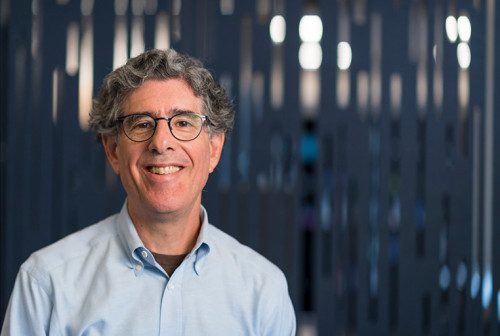05 Oct UW–Madison to launch novel research on suicide prevention and well-being

Richard Davidson, founder and director of the Center for Healthy Minds, is a co-investigator of the study.
A multi-disciplinary team of University of Wisconsin–Madison researchers, led by the Center for Healthy Minds and the Wisconsin Institute for Sleep and Consciousness, is set to begin a highly novel, multi-phase study exploring whether a combination of targeted brain stimulation and meditation can improve well-being and help prevent deaths by suicide.
Innovative, science-backed strategies to improve well-being and prevent suicide are urgently needed. According to the World Health Organization, more than 700,000 people die by suicide every year globally, with a high percentage of deaths among teens and young adults. The International Association for Suicide Prevention reports that people suffering from depression are 20 times more likely to die by suicide than those without the disorder. The U.S. Surgeon General has flagged “significant increases” in recent years of certain mental health disorders among youth, including depression, anxiety, and suicidal ideation.
Researchers have previously explored relationships between cognitive inflexibility, or difficulty adapting to changes, inability to regulate emotions and greater vulnerability for suicidal thoughts and attempts. In this new study, UW–Madison researchers will investigate how complementary neuroscience and meditation-based interventions could target and repair the areas of the brain that control emotional regulation and cognitive flexibility — the ability to multitask and adapt.
Supported by a new 30-month contract worth up to $14 million from the federal Defense Advanced Research Projects Agency (DARPA), the team will initially focus on assessing and testing the interventions with low-risk, healthy study participants.



